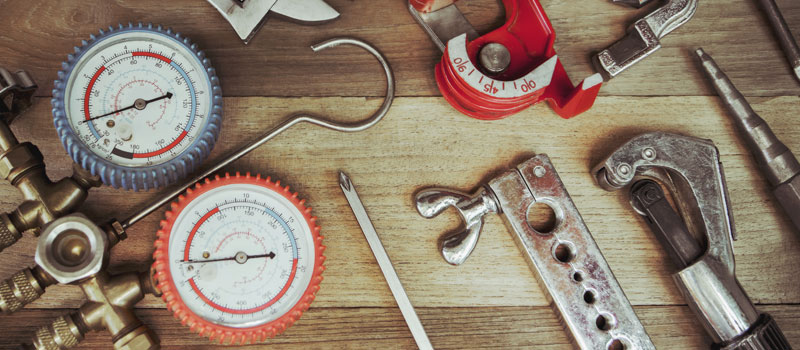Air Conditioning Maintenance – Why It Matters

If you have an HVAC (Heating, Ventilation and Air Conditioning) system in your premises, you will have not only made a significant financial investment but also spent time in selecting the most suitable equipment for your premises.
In return you will expect your system to work optimally all year round allowing you to get the maximum amount of comfort whether that is cooling in the summer or heating in the winter.
In order for this to happen, you will need to schedule routine maintenance of your air conditioning equipment, just as you need to regularly service your car. You wouldn’t expect your car to work with little or no oil and in the same way your air conditioning system won’t work at its optimum level without clean filters and the correct level of refrigerant.
Maintenance – Why Does It Matter?
1. Efficiency of the system
Regular maintenance enhances the efficiency of the system. Research shows that units which are not regularly maintained need to work 20% harder to produce the same amount of cooling or heating as one that is maintained.
Air Filters
Air conditioning filters must be routinely cleaned and at times replaced in order that the system works correctly. An air conditioning filter catches the dust and dirt from the air and stops these particles travelling directly onto the evaporator coil, which in turn makes the cold/heat transfer less efficient. A clogged air filter makes it more difficult for the system to draw in air, making the unit run for longer, increasing energy usage.
Condensate Pump & Drain
When the air conditioning system is running, the evaporator coil produces condensation. The condensate pump and drain remove this condensation from the coil to the outside. Inspecting and cleaning the condensate pump on a regular basis will prevent the build up of condensation and subsequent water damage. The condensate drain also needs to be properly cleaned as mould and algae can grow inside and clog the drain resulting in increased humidity.
Condenser & Evaporator Coils
As time goes by, these coils may become contaminated and clogged with debris, dust, moisture and other contaminants. Not only will this increase the potential for microbiological growth but will also reduce the efficiency of the heat transfer process leading to increased energy usage and poor performance.
According to the US Department of Energy “a dirty condenser coil can increase compressor energy consumption by 30%”, whilst the 2010 Southern California Edison report showed that “a dirty evaporator coil can cause up to a 40% reduction in cooling capacity with a 35% decrease in energy efficiency”.
2. Lifespan of The Equipment
If one part of the system is not working as it should be, such as in the case of an evaporator or condenser coil which has not been cleaned, it will result in other parts of the system having to work harder or for longer. This will inevitably lead to a decrease in the lifespan of the equipment.
3. Air Quality
A dirty filter will lead to lower indoor air quality. A clean air filter means you will not be continually circulating dust and other particles throughout your indoor environment and will enable your system to purify the air.
4. Manufacturers Warranties
If you have recently installed an air conditioning system and it is working perfectly, you may ask yourself why you need to have it maintained? It is likely that your new system will have a 3, 5- or 7-year warranty. However, in order to validate the warranty most manufacturers insist on routine maintenance of the equipment. Without this in place, you may find you are not covered should anything go wrong.
5. Breakdowns/Emergency Repairs
During a regular maintenance visit, an engineer will often be able to identify and repair a small issue before it becomes a much larger one. A system which breaks down when you really need it, causes a lot of disruption and inconvenience to your business not to mention a greater financial cost.
6. Legal Obligations
Under the F Gas Regulations, anyone with air conditioning installed, deemed to be the ‘operator’, is responsible for having the system leak checked at regular intervals.
Equipment that contains F-Gas above a certain threshold must be at specific set intervals. In January 2017, the legislation changed so that the frequency of the test inspections are now based on the GWP of the refrigerant multiplied by the estimated volume contained in each individual system – otherwise known as the CO2e figure.
If the system contains between:
- 5 & 50 tonnes CO2e, it will require 1x leak check every year
- 50 % 500 tonnes CO2e, it will require 1x leak checks every 6 months (2 per year)
- Greater than 500 tonnes CO2e, it will require 1x leak check every 3 months (4 per year).
For example
A system which contains more than 2.39 kg of the refrigerant R410A will require a leak check once a year.
A system which contains more than 23.9kg of the refrigerant R410A will require a leak check twice a year
A system which contains more than 239kg of the refrigerant R410A will require a leak check four times a year.
All engineers which carry out leak testing & repairs on equipment containing HFC refrigerants must hold an F-Gas Handling certificate and work for an F-Gas certified company.
How often is maintenance needed?
Most of our customers have 1-2 visits per year for routine maintenance work.
However, like most things this will very much depend on the size of the equipment and the level of refrigerant, together with the amount of usage.
Can We Help?
As Winter is approaching, this is a great opportunity to have your system maintained, especially if your business requires it to be used for heating during the winter months.
For further help and guidance on maintenance visits, please call the Mattair Team today on 01246 414922

